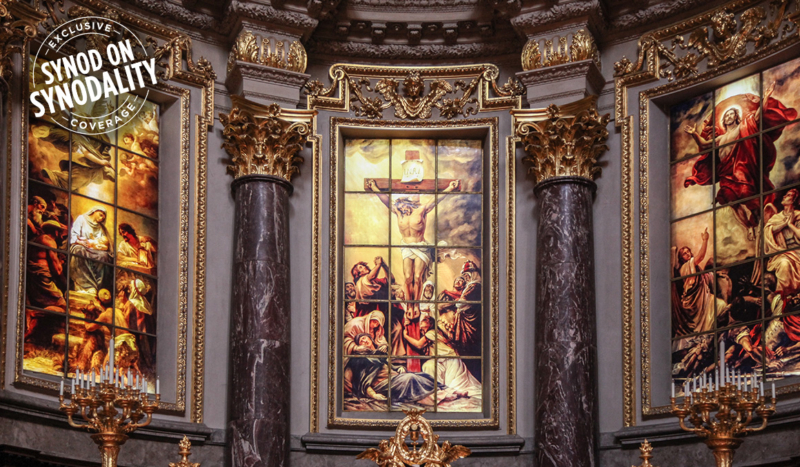
Fr. Timothy Radcliffe, O.P., reflected on Christ’s model for communion in his opening reflection for the synodal congregation on October 9, suggesting that open disagreement can lead to deeper encounters among the faithful.
The general rapporteur of the Synod, Cardinal Jean-Claude Hollerich warned that tensions would rise this week during the synod discussions. During his reflection, Radcliffe drew upon Hollerich’s warning where he said that “angry but real encounter[s]” are foundational to the Church.
In his reflection, Radcliffe primarily spoke on the story of Christ’s encounter with the woman at the well in John Chapter 4, highlighting “thirst” as a driver towards communion.
He reflected that the concept of “thirst,” which permeates John’s gospel, can help overcome isolation.
From providing wine to thirsty wedding guests, to asking for a drink at the well, to crying out “I thirst,” from the cross, “God comes to us as one who is thirsty, above all, for each of us,” said Radcliffe.
He further cited the medieval mystic Julian of Norwich, who said that “the longing and spiritual [ghostly] thirst of Christ lasts and shall last till Doomsday.”
“How do we become passionate people—passionate for the Gospel, filled with love for each other—without disaster? This is a fundamental question for our formation,” continued Radcliffe.
When thirst moves us to an encounter with God and with others, we move towards communion—but Jesus’ encounter with the woman at the well involved her “get[tting] heated” in her frustration, Radcliffe said.
He further argued that personal disagreements were historically part of the Church, even between St. Paul and St. Peter: “The Holy See is founded on this passionate, angry but real encounter.”
“The people whom St. Paul could not abide were the underhand spies, who gossiped and worked secretly, whispering in the corridors, hiding who they were with deceitful smiles,” he observed. “Open disagreement was not the problem.”
Radcliffe highlighted that open disagreement is acceptable and part of the Church’s foundation, arguing that “abstract labels” lead many to feel marginalized—but personal encounters counteract that.
“Love is personal and hatred is abstract,” Radcliffe explained, citing Catholic novelist Graham Greene, who wrote in The Power and the Glory: “Hate was just a failure of the imagination.”
“We should be formed for deeply personal encounters with each other, in which we transcend easy labels,” Radcliffe said.
“What isolates us all is being trapped in small desires, little satisfactions, such as beating our opponents or having status, wearing a special hat!” Radcliffe added.
“So many people feel excluded or marginalized in our Church because we have slapped abstract labels on them: divorced and remarried, gay people, polygamous people, refugees, Africans, Jesuits!”
Fr. Timothy Radcliffe is a member of the Dominican Order of Preachers and has received criticism for his commentary on gay marriage.
“A friend said to me the other day: ‘I hate labels. I hate people being put in boxes. I cannot abide these conservatives,’” said Radcliffe. “But if you really meet someone, you may become angry, but hatred cannot be sustained in a truly personal encounter. If you glimpse their humanity, you will see the One who creates them and sustains them in being whose name is I AM.”
Though Pope Francis has asked participants not to speak about the contents of the meetings, some of the congregations are broadcast live. Fr. Timothy Radcliffe also directed the three day retreat prefacing the Synod on Synodality’s launch on October 4, reflecting on the spirit of truth during the multiple day event north of Rome in Sacrofano.
